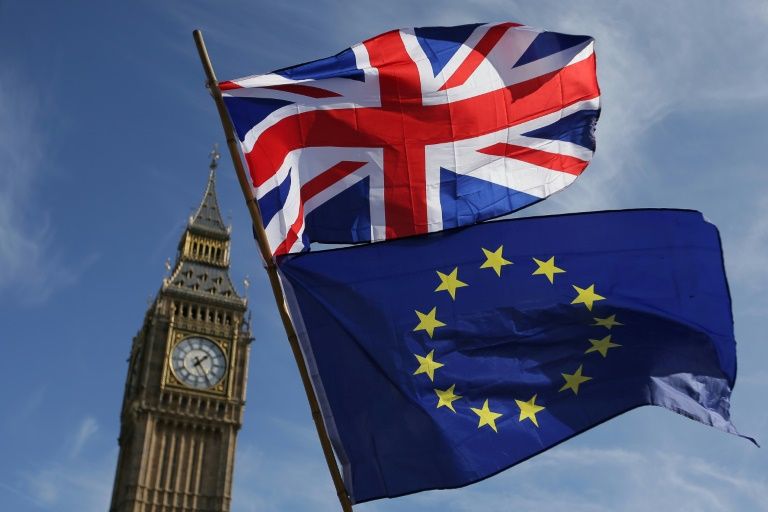EU-UK talks go late with post-Brexit deal ‘in sight’
If negotiations fail, the UK will leave without a follow-on trade deal at the end of December. ©AFP/File Daniel LEAL-OLIVAS
Brussels (AFP) – Britain and the European Union were hammering out the final details of a post-Brexit trade deal on Thursday ahead of what negotiators hoped would be a pre-dawn breakthrough.
The front pages of several British newspapers had already proclaimed victory for Prime Minister Boris Johnson in the quest for a pact, but in Brussels work continued.
European diplomats were studying the text of an accord drawn up after almost ten-months of intense negotiations and an eleventh-hour flurry of calls between Johnson and EU chief EU von der Leyen.
But the leaders were not able to announce a deal before Christmas Eve arrived, as they had hoped.
“Brexit work will continue throughout the night,” European Commission spokesman Eric Mamer tweeted just after 1.00 am (0000 GMT).
“Grabbing some sleep is recommended to all Brexit-watchers at this point. It will hopefully be an early start tomorrow morning.”
Several hours earlier, European officials had confidently told journalists: “We are in the final phase.”
But diplomatic sources said that member states, in particular France, had wanted to the Commission to go back to the British camp to seek specific guarantees on some of the commitments in the accord.
The British pound surged against the dollar on optimism that a deal could finally be reached, with sterling rising to $1.35 before 1600 GMT. The pound also gained against the euro, which stood at 90.16 pence.
A French government source said UK negotiators had made “huge concessions” on fisheries — the key sticking point as the clock ticks down to Britain’s departure.
The last-gasp deal, if it is reached, would come just days before Britain is set to leave the EU’s single market at the end of the year, sparing the two sides from trade tariffs.
A deal — which would still need to be translated and tidied up by lawyers — could be approved provisionally before the cut-off date and then scrutinised by EU lawmakers in the new year to avoid a cliff-edge.
– Empty nets? –
The focus in talks had shifted since Monday to cross-Channel calls between Johnson and von der Leyen after exhausted officials failed to close the gap on how to share access to UK fishing waters.
The remaining differences between the two camps were narrow but deep, in particular over fishing, with EU crews facing a dramatic cut in their catch from British waters.
London has pushed to reduce EU fishing fleets’ share of the estimated 650-million-euro ($793 million) annual haul by more than a third, with changes phased in over three years.
The EU, in particular countries with northern fishing fleets like France, Denmark and the Netherlands — was insisting on 25 percent over at least six years.
– Narrow path? –
Brussels was ready to negotiate until the end of the year — or even “beyond”, as EU negotiator Barnier suggested on Tuesday — but time was running out for any deal to be provisionally applied.
Failure to reach a deal would mean tariffs on cross-Channel trade in food and goods, exacerbating the economic shock of a return to a customs border after 47 years of integration.
Britain and France experienced a foretaste of what the chaos might look like this week when France abruptly closed its borders to British lorries, trains and planes.
Paris was responding to concerns about a new coronavirus variant spreading in Britain, but the huge queues of trucks and threats of supply shortages were taken as an ominous sign.
Both London and Brussels insist they are ready for a return to tariffs and a customs border — but business groups are sounding the alarm about the possible disruption to come.
burs-fmi-del/dc/rbu
Disclaimer: Validity of the above story is for 7 Days from original date of publishing. Source: AFP.


